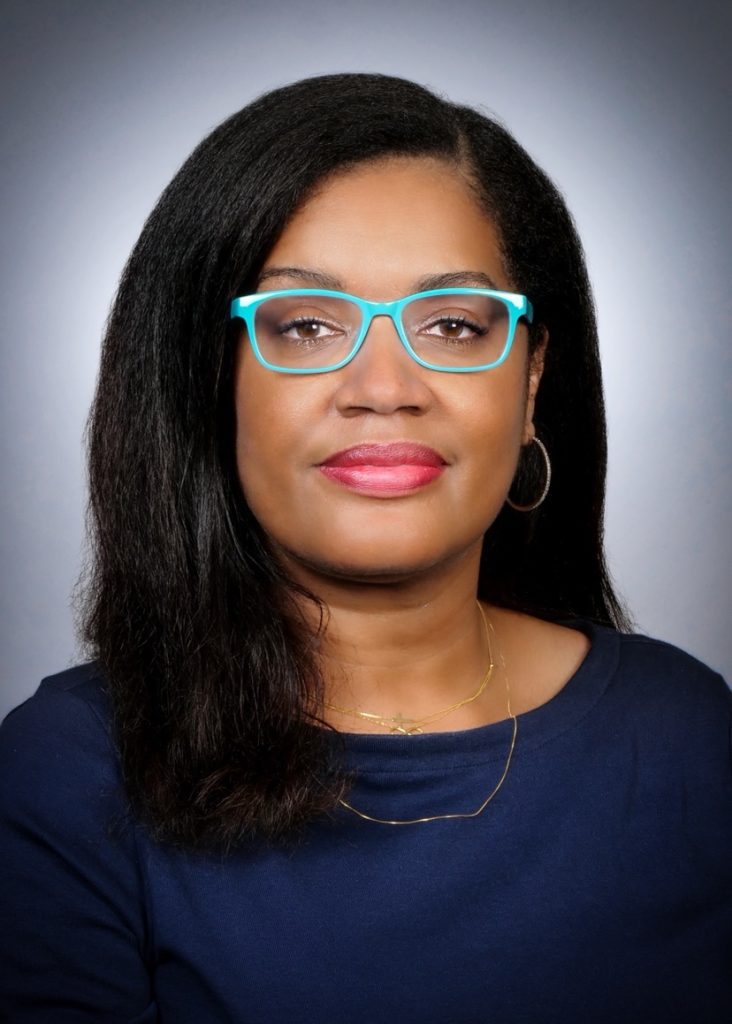Overcoming Obstacles to Make an Impact: Camille Coffie

Roadblocks and obstacles inspire Camille Coffie.
It’s how she reached her position today pursuing a doctorate in physics, and what inspires her to help other young black women access the sciences. Coffie made a big step in that direction recently when she was named co-principal investigator on a project titled “Journey to a PhD through the Lens of Black Women in Physics.” The two-year project comes with a $198,000 grant from the American Physical Society.
“In times where other people might feel like I shouldn’t be here, I feel the opposite,” Coffie said. “I am here because of my work ethic, because I worked hard in high school to get good grades. That’s what led me to understand that education was going to be my key to opening doors.”
Those doors didn’t swing open easily for Coffie. Coffie grew up in a predominately black, lower income neighborhood in Oak Cliff, Texas. Her exposure to physics was minimal and under resourced.
“When I took high school physics, we didn’t have a lot of lab equipment; we pretty much were taught out of the textbook,” said Coffie. “I thought the subject matter was quite interesting, but I couldn’t help feel there was a better way to teach it.”
Graduating high school as the salutatorian, Coffie made the decision to attend Spelman College in Atlanta Georgia, over other offers in Texas. Spelman attracted Coffie because it is a private women’s college designated as a Historically Black College and University (HBCU).
“I just really longed for that sense of community with other black women who were focused on the same goals for success that I was,” Coffie explained.
She found that community, but it wasn’t everything she expected. While other students drove up and carried their belongings with their families’ assistance, Coffie rode the Greyhound with her mother with just a duffel bag. The class difference had quickly become apparent.
“I looked around, and even though I was by myself, I thought, ‘Wow, I am here with these girls whose parents are judges, attorneys, and doctors.’ My mom was a clerk at City Hall in Dallas,” said Coffie.
The disparity motivated her, though. Spelman changed her major from biology to physics after her first physics course. Post-graduation she got a job as a project engineer at the Johnson Space Center in Houston Texas.
“Majoring in physics kind of read to them that I was a problem solver, that I wasn’t afraid of a challenge, that I was a quick learner, that there was nothing that they could teach me that I wouldn’t be able to grasp,” said Coffie
She would go on to work a few other jobs in engineering and have a short stint in the Navy, but switched to teaching when she started a family to be on her children’s schedule.
As a teacher, she was able to teach physics the way she envisioned as a student in high school. When her students expressed interest in physics but apprehension to pursue it, she began to explore physics education research. That included teacher conferences through the American Association of Physics and research on how to make physics more inclusive and accessible for students of all backgrounds, including special needs.
After her son graduated, Coffie decided to go back to school and complete her Ph.D., which lead her to apply to the Bridge Program at UCF. The Bridge Program was launched at UCF in 2015 with a goal to “recruit, mentor and prepare under-represented minority (URM) students for admission to a Physics PhD program of their choice.”
Associate Professor Jacquelyn Chini, Ph.D. works closely with the BRIDGE Program and shares principal investigator status on Coffie’s project.
“Camille has been a mentor to her colleagues in the Bridge Program both within and beyond physics,” said Chini.
After obtaining her Ph.D., Coffie wants to teach at the post-secondary level and continue mentoring black women in her field. It may not always be easy, but those roadblocks only serve to motivate her further. Coffie attributes her perseverance to her ancestry.
“There’s something instilled in my genealogy that’s driven against all odds. I’m going to do what I set out to do. It just goes on down the lineage. That internal motivation, that internal drive to defeat the odds.”
